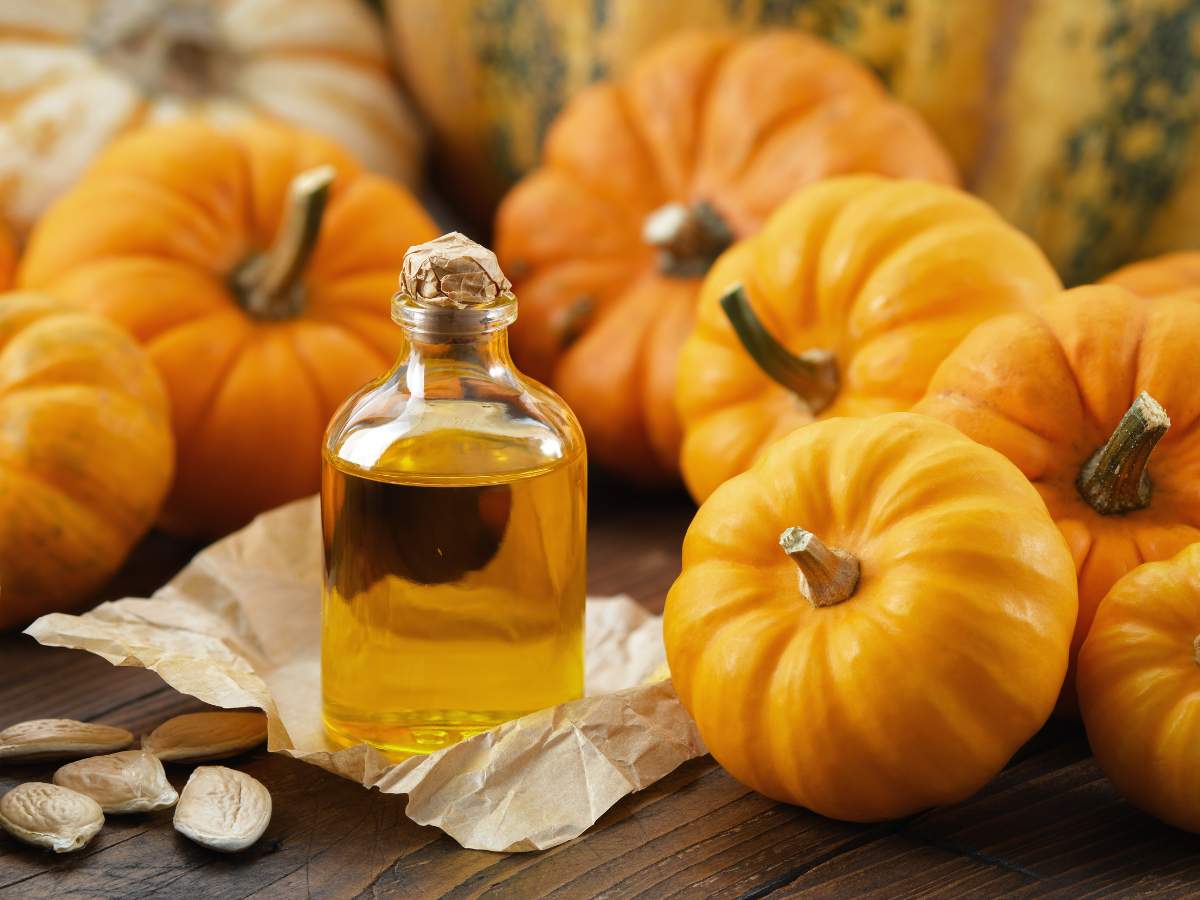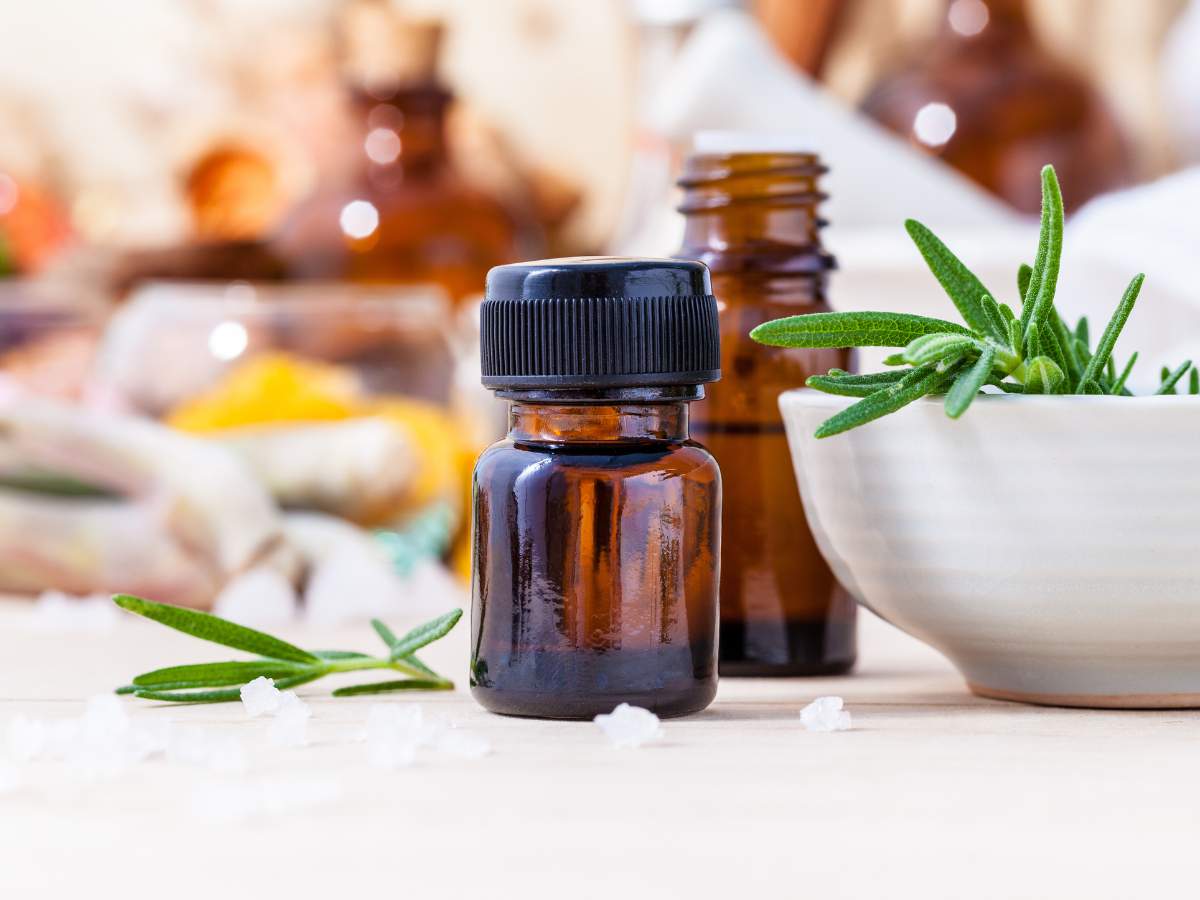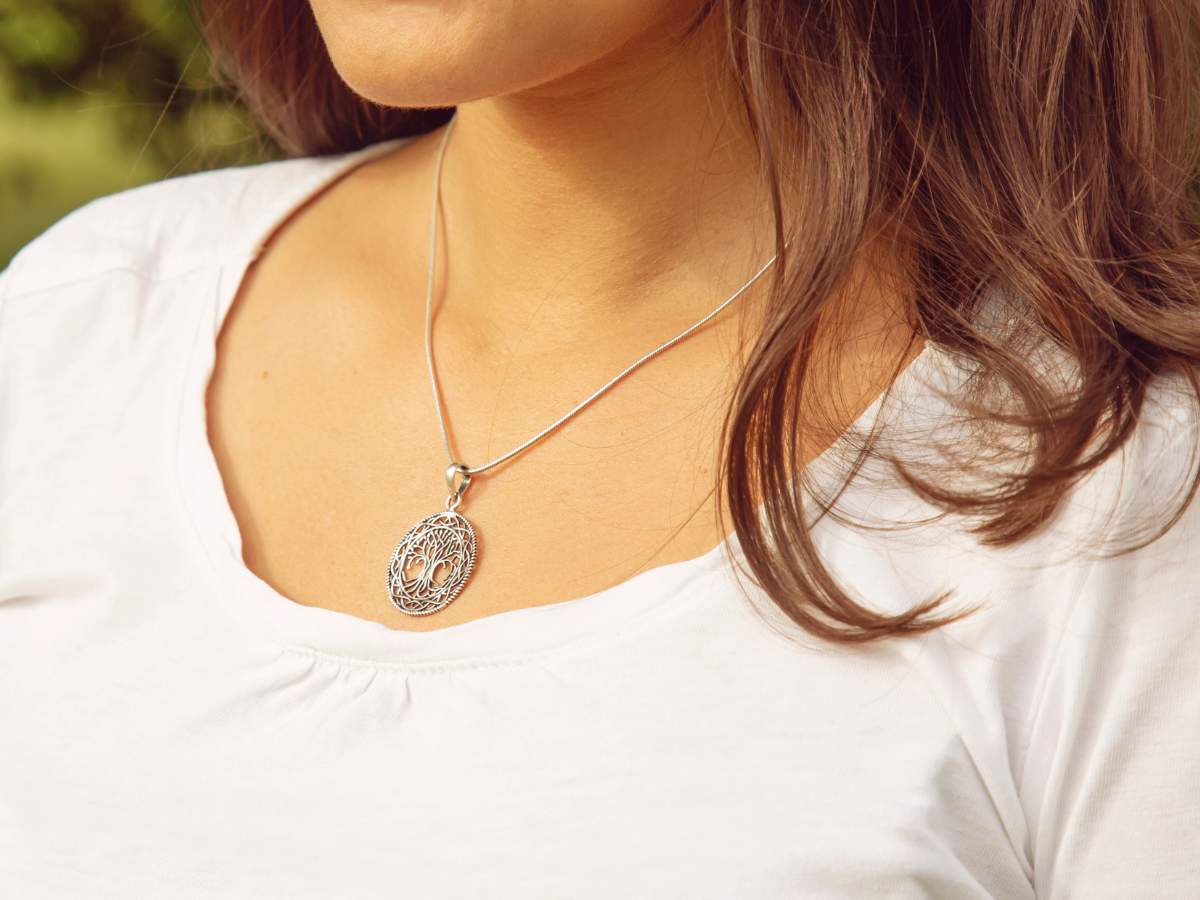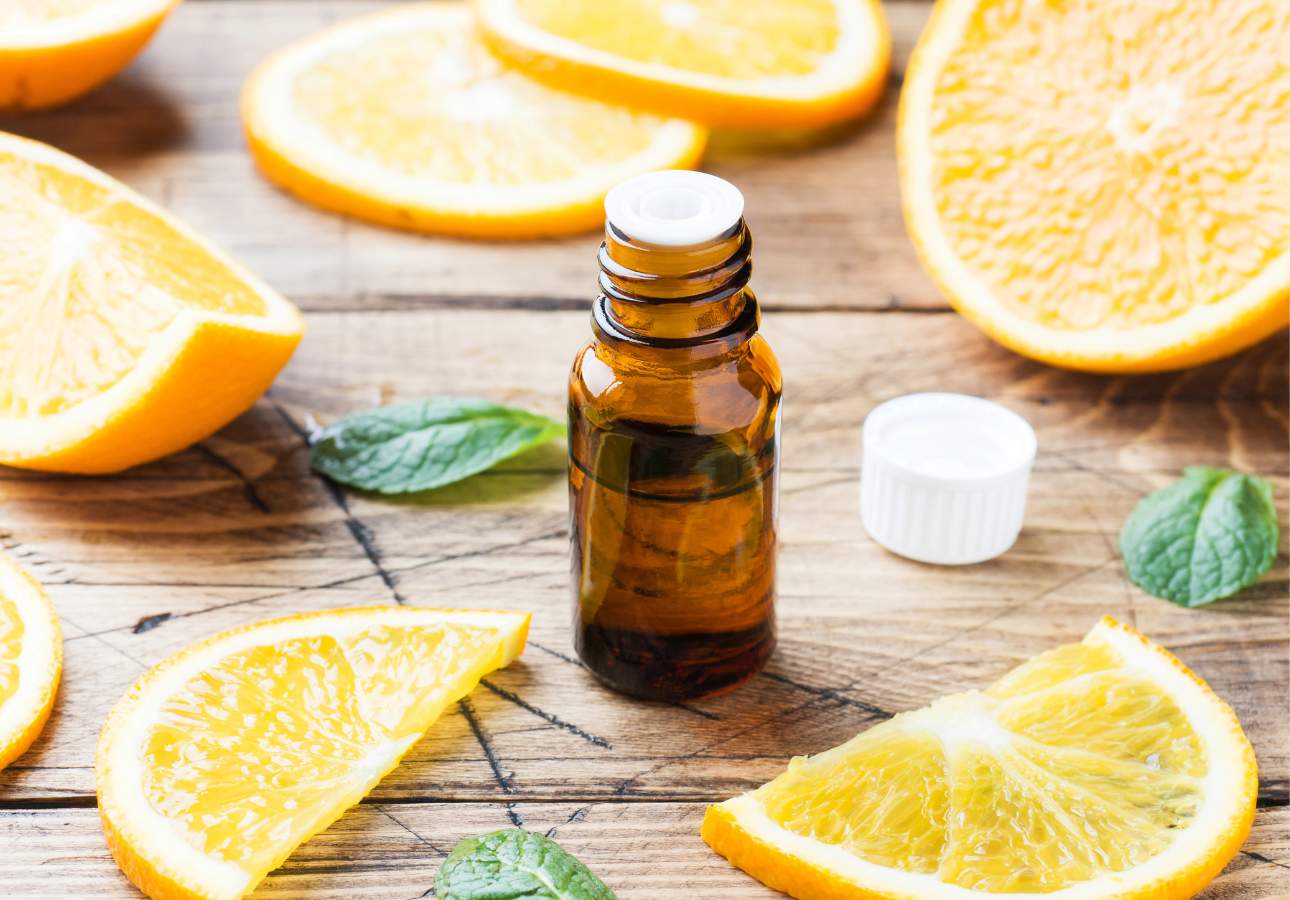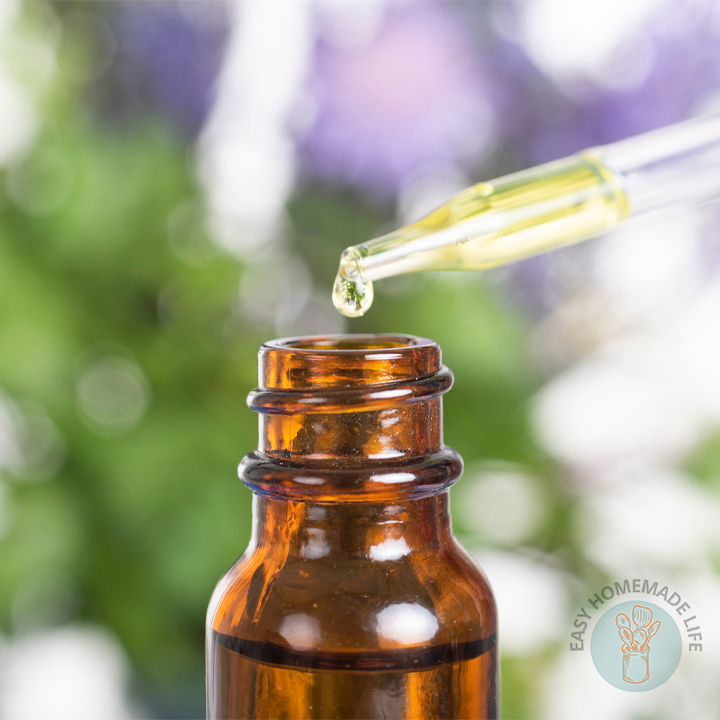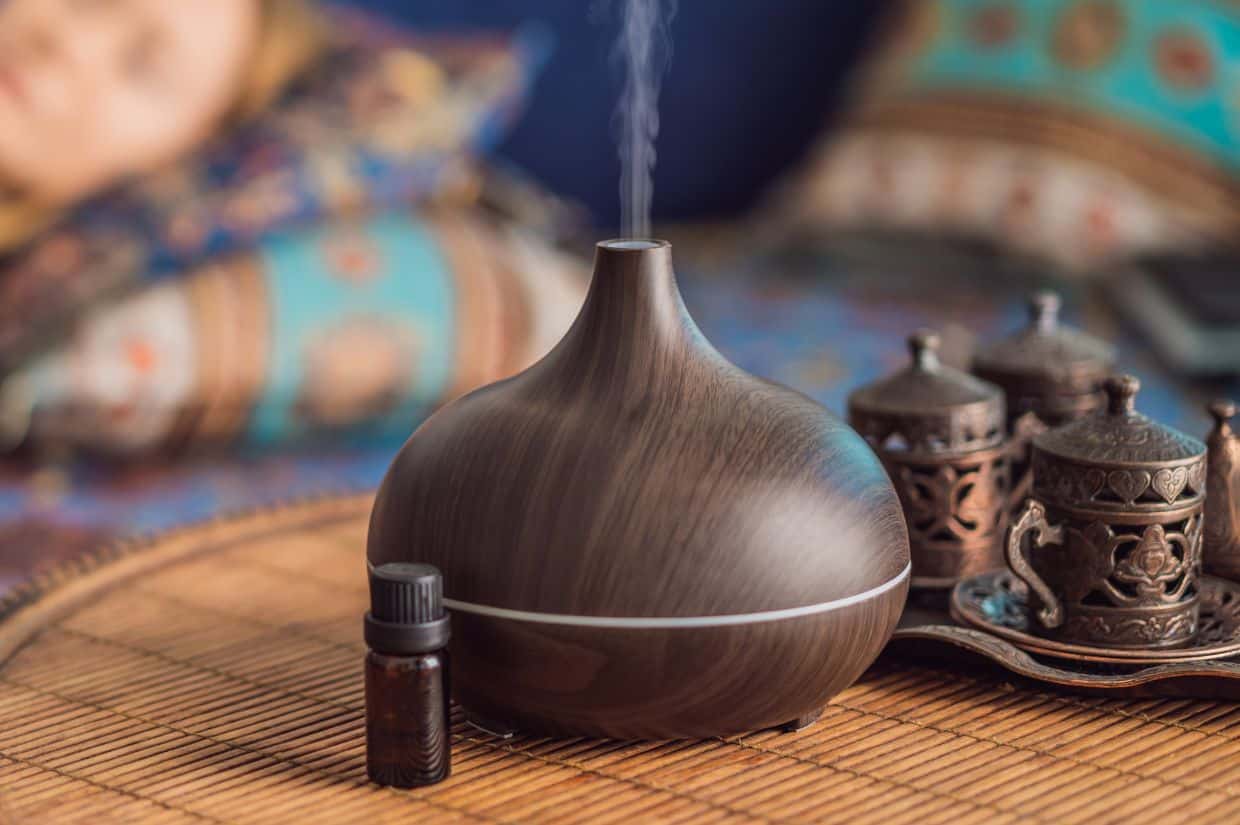How Many Drops of Essential Oil To Add In A Diffuser?
As a participant in the Amazon Services LLC Associates Program and other affiliate programs, Easy Homemade Life may collect a share of sales or other compensation from the links on this page. This comes at no additional cost to you, and all the prices and availability are accurate at the time of publishing.
I also wondered how many drops of essential oil to add in a diffuser the first time I got into aromatherapy. It can be confusing to determine the right amount, especially with so many factors at play. Adding too little might result in an underwhelming scent, while adding too much can overpower your senses.
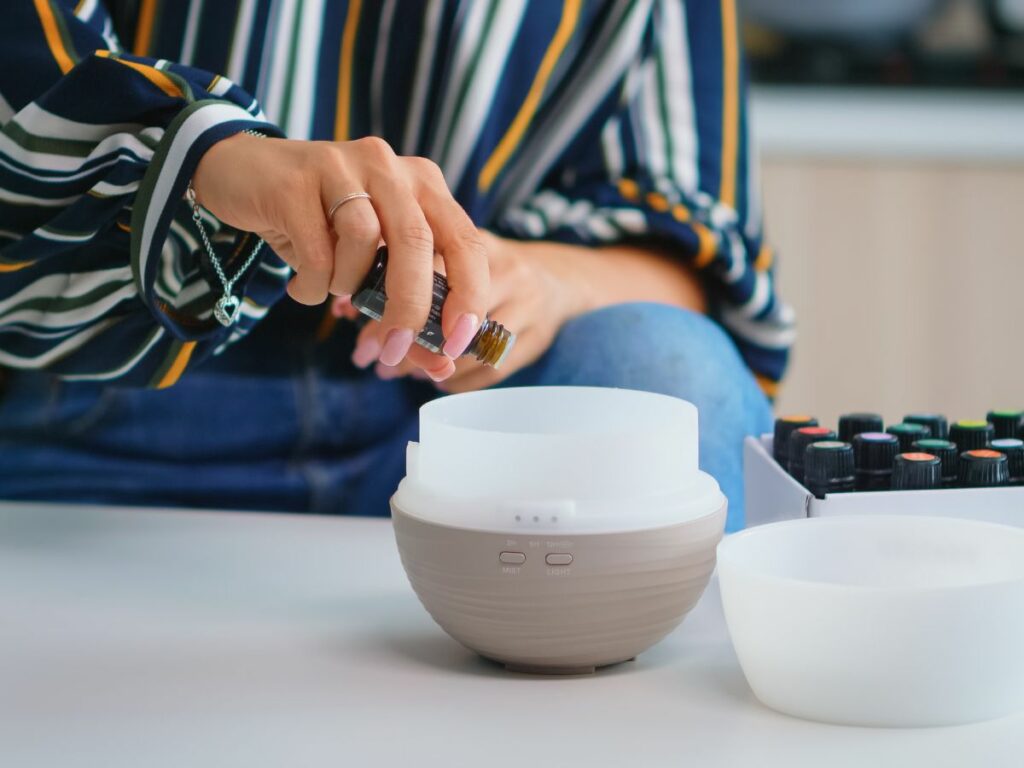
It took me a while to find the perfect balance and I’m happy to share with you what I learned. In this blog post, let’s talk about the right amount of essential oil to add to your diffuser, the factors that influence how many drops you need, and the pitfalls of adding too much essential oil. I also included some helpful tips to make your diffuser smell stronger, so you can make the most of your aromatherapy experience.
How Much Essential Oil To Add To A Diffuser?
The answer to this question varies. There is no right or wrong way to diffuse, and the right amount is widely up to you – depending on your personal preference and the effect of the scent you want to achieve.
For starters, it’s best to refer to your diffuser’s manual for the recommended number of drops to use for your specific model. If no amount is specified, I recommend starting with 3 to 5 drops of a single essential oil for a standard diffuser (100 ml capacity), which is the most common type available in the market.
You can also diffuse blends, which are two or more essential oils combined to create a unique scent. While I usually make my blends in an essential oil bottle, you can also mix the oils directly in your diffuser – just add 1 to 2 drops per oil to make a nice blend. I diffuse blends more often than not, and right now, I’m diffusing one of my citrus essential oil blends while my husband is enjoying his masculine essential oil blends in his office!
As you continue to diffuse, you can increase or decrease the number of drops according to your liking. Soon enough, you’ll find an amount that works well for you.
Moderation is key to determining how many drops of essential oil to add in a diffuser. It’s important to find the right amount for effective and pleasant diffusing, and to make sure that you enjoy the therapeutic benefits of your essential oils. To do so, you’ll need to consider some important factors.
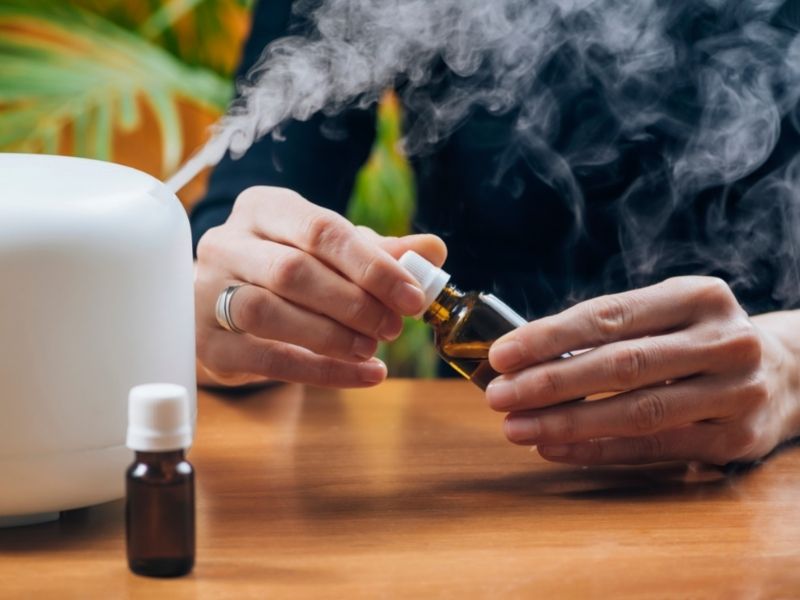
Factors That Influence The Number Of Drops You Need
How much essential oil to add to your diffuser depends on many factors. Let’s go through each one so you can determine the right amount to use for your specific situation.
Size and Capacity of Your Diffuser
Your diffuser’s size and capacity play a big role in determining the right amount of essential oil to use. Small diffusers are designed to disperse aromas in small spaces, so they only need a few drops of essential oils. Larger diffusers with bigger water tanks need more drops so they can distribute the scent effectively in larger areas.
Here is the recommended number of drops depending on the size and capacity of the diffuser:
- 100 ml: 3 to 5 drops
- 200 ml: 6 to 10 drops
- 300 ml: 9 to 12 drops
- 400 ml: 12 to 15 drops
- 500 ml: 15 to 20 drops
Room Size
The size of the room where you intend to use the diffuser also impacts how much oil to put in your diffuser. Depending on the capacity of your diffuser, 5 to 10 drops would be ideal for smaller spaces such as bedrooms, offices, or bathrooms. On the other hand, 10 to 20 drops is a good range for larger areas such as living rooms or open-plan spaces.
Type of Essential Oil Used
It’s important to know that different essential oils have varying levels of potency so the type of oil used matters. Certain types of essential oils such as chamomile and lavender oil have a lighter, softer scent compared to others, which means you will need a higher quantity to get the same strength as other essential oils if you diffuse them.
On the other hand, essential oils like cinnamon, eucalyptus, peppermint, and citrus oils have a stronger, more potent aroma, so you’ll need less drops so that the smell won’t be too overpowering.
Additionally, it’s also important to consider the quality of the essential oils. Fragrance oils are usually cheaper and they usually contain synthetic additives and fillers, which can dilute the real scent of the oils.
Desired Intensity
Your desired intensity of the scent also influences how much essential oil you need to use. Some people enjoy subtle, delicate scents thus needing only a few drops – 3 to 5 drops is ideal to create a light, refreshing aroma. Others prefer a stronger, more noticeable scent while diffusing. In this case, at least 8 to 10 drops are recommended to create a bold, stimulating atmosphere.
Adjusting the number of drops allows you to customize the aroma to your liking. At home, I usually add only a small amount of my essential oil blends for relaxation to my diffuser when I need to unwind, but I make sure to diffuse more drops of essential oils for flu when someone at home is sick.
Personal Preference
Aside from one’s preferred scent intensity, everyone’s sensitivity to smells varies. This is why personal preference is also an important factor. My sister, for example, is very sensitive to smells – what we find subtle at home is still too strong for her, so I need to use less drops of essential oils whenever she comes over, even when I’m diffusing her favorite ginger essential oil blends.
In addition, preferences can also change based on the time of day, a specific activity, or even the season. You might need to use more oils to create a strong, energizing scent to wake you up in the morning, while less drops are needed later in the day to create a calming and soothing environment after a long day at work.
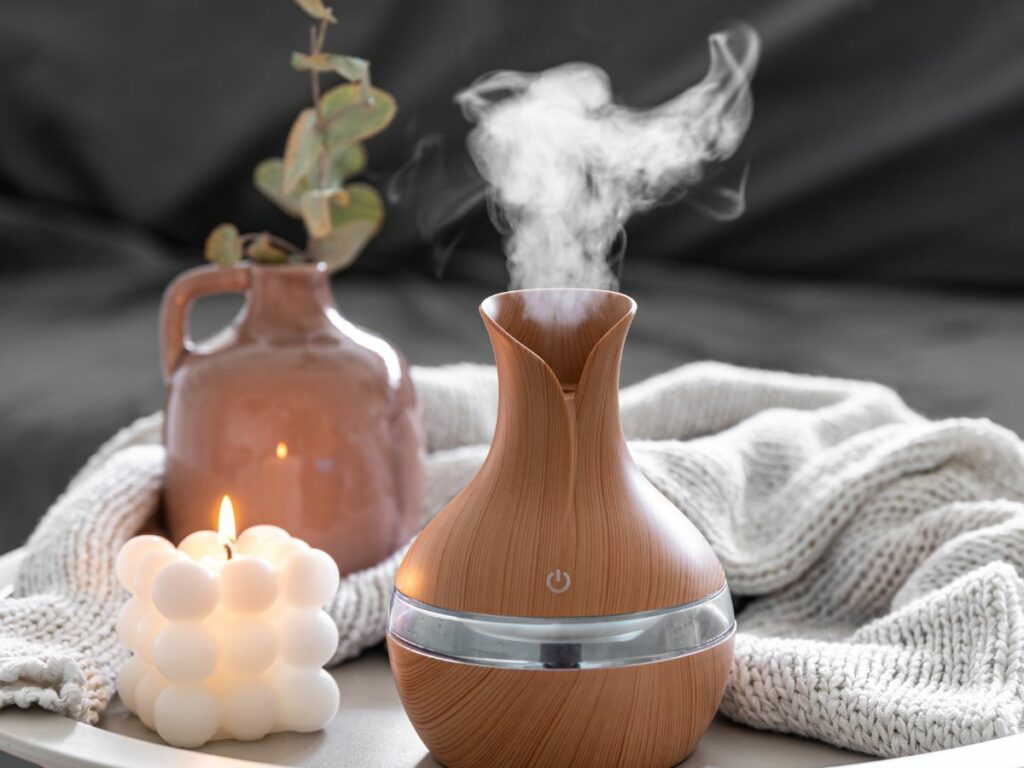
What Will Happen If Too Much Essential Oil Is Used?
If you prefer stronger aromas, it’s understandable that you want to diffuse a higher number of essential oil drops. However, it’s still important not to use more than the recommended amount of essential oils according to your room size. While essential oils are considered safe substances, they should still be used in moderation because they directly affect our mood and health.
Young Living recommends limiting diffusing sessions to 30 to 60 minutes at a time, and 20 to 30 minutes when using potent scents or diffusing around children and pets. Continuous diffusing can lead to overexposure, which may cause headaches, dizziness, or irritation, particularly in sensitive individuals.
Dr. Kai-Jen Chuang from Taipei Medical University, who spearheaded a study on exposure to essential oils, says, “Our results suggest that exposure to essential oil for 1 hour would be effective in reducing heart rate and blood pressure. However, the most interesting finding of our study is that exposure to essential oil for over an hour was associated with elevated blood pressure and heart rate.”
Tips To Make Your Electric Diffuser Smell Stronger
The good news is that there are many ways to enhance the smell of essential oils without going over the recommended amount. Follow these tips to enjoy invigorating scents and get the most out of your essential oils.
Use High-Quality Essential Oils
Like I mentioned above, there are many fragrance or low-quality oils in the market that are diluted and made with harsh chemicals, which can weaken the scent of the oils and reduce their therapeutic benefits. These oils not only produce faint smells when diffused, but can also pose some health hazards like nausea, allergic reactions, and other symptoms.
It’s important to use only pure and therapeutic-grade essential oils, which are made using methods that preserve the potency of the plant’s natural essence. As a result, you get to enjoy stronger and longer-lasting scents while getting the full spectrum of aromatherapy benefits.
Choose Stronger Scents
I’ve also touched on this earlier, that some essential oils naturally have a more robust aroma than others. If you enjoy a fine mist with strong scents, go for these pure essential oils:
These oils have a potent, distinct smell and typically have energizing, uplifting, and stimulating properties. Diffusing these powerful oils will give you a rich, lasting fragrance that can wake you up and boost your mood.
Adjust the Diffusion Settings
Essential oil diffusers and nebulizers all come with adjustable settings which allows you to customize your diffusing experience. You can adjust the diffusion frequency and intensity to the highest setting if you prefer a stronger aroma, as higher settings release more essential oil particles into the air, creating a more concentrated scent.
Optimize Placement
Optimize the placement of your diffuser if you’re aiming for a stronger scent. Place it in a central location where the aromatic particles can disperse more uniformly in the air and circulate the scent evenly throughout the room.
Limit Airflow
Airflow is another important factor to consider which affects the intensity of essential oil scents. To minimize airflow, avoid placing your diffuser near open windows, vents, and other sources of strong air. This can dilute the fragrance and cause the essential oils to dissipate more rapidly, reducing the intensity and longevity of the fragrance.
Use Warm Water
During the holiday season, I want our home to smell like Christmas, so I always diffuse one of my winter essential oil blends or sugar cookie blend. I found that using warm water in the tank produces a stronger scent because the warmth helps release the oil’s fragrance more effectively. Plus, it’s especially comforting when the weather is cool.
However, it’s best to check your diffuser’s manufacturer’s instructions to make sure that it supports warm water, as some diffusers are not designed to handle high temperatures. Also, for safety purposes, use distilled water or filtered water instead of just tap water as much as possible.
Clean the Diffuser Regularly
If you feel that your diffuser is giving a weak scent output, perhaps it’s time to clean it! Cleaning removes buildup of oil residue, which can clog the diffuser and reduce its efficiency. Ideally, you should wipe down your diffuser with a damp cloth after every use to prevent residue buildup, especially if you use more than one essential oil or if your diffuser has a large reservoir. If your diffuser operates on a battery, don’t forget to remove it while cleaning.
Upgrade Your Diffuser
If you’ve tried all the tips above and still find the scent too weak, consider upgrading your diffuser to a newer, more advanced model. Newer diffusers are often more powerful and feature stronger motors, which can enhance the diffusion process and deliver a more potent aroma.
If you invest in a high-quality diffuser with a more advanced technology, you can expect that your desired level of scent intensity will be met. I recently upgraded our unit for our living room and I made sure to research the best essential oil diffusers so I can find one that best fits my needs.
Wrapping Up
Diffusers are wonderful devices. However, it’s not easy to determine how many drops of essential oil to add in a diffuser if you’re a beginner in aromatherapy. There are guidelines and recommendations to follow, but as you get more familiar with diffusing, you will discover the perfect amount that will best work for you. Consider your diffuser’s capacity, the size of your room, your desired intensity, the essential oils you use, and your personal preference to find the right balance.
Did you find this article interesting? If you did, save it in your bookmarks and use it as a reference for when you’re diffusing. If you have friends or family who are into aromatherapy, perhaps they’d love to know the number of drops of essential oil to add to their diffuser, too!


